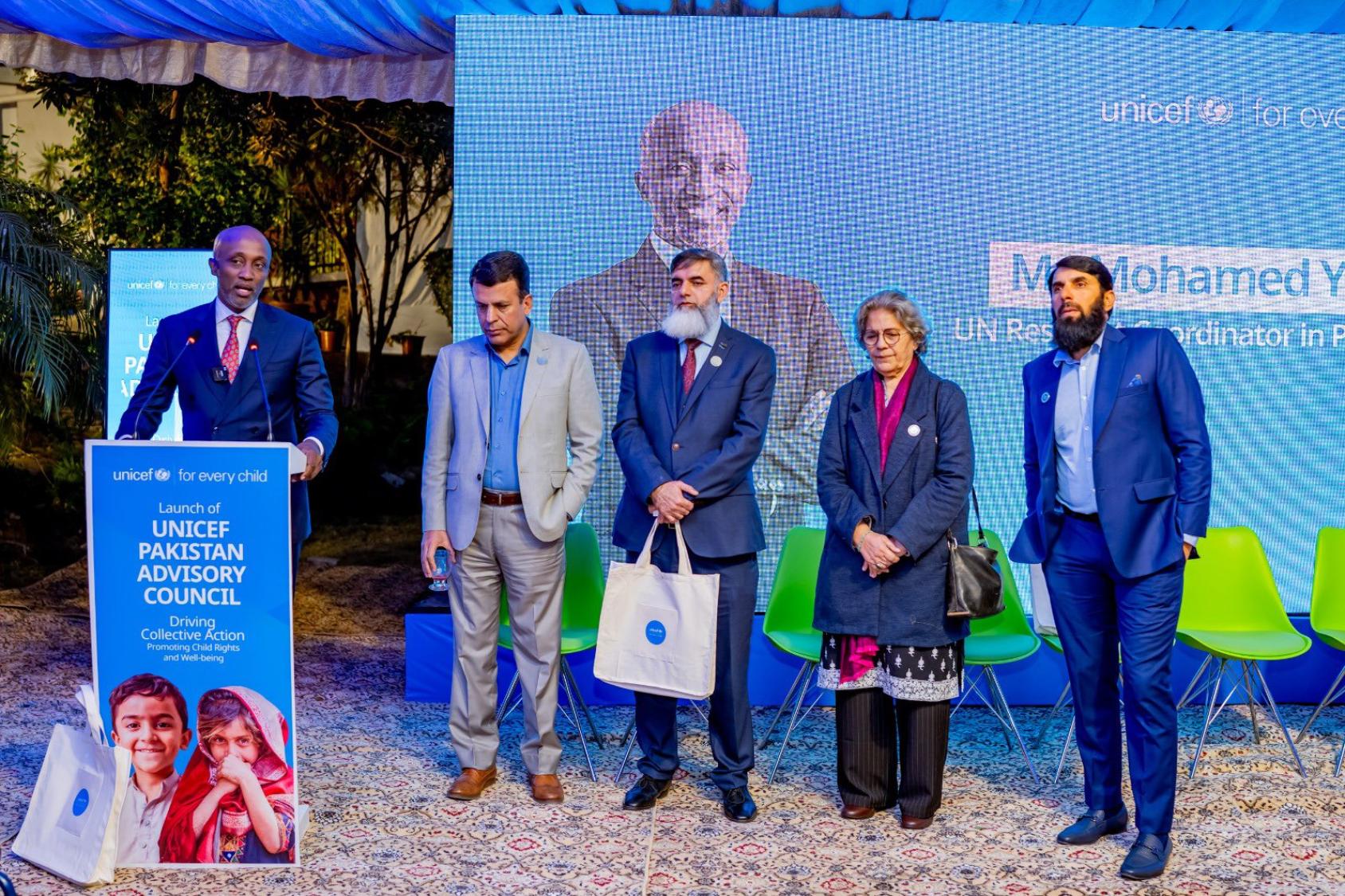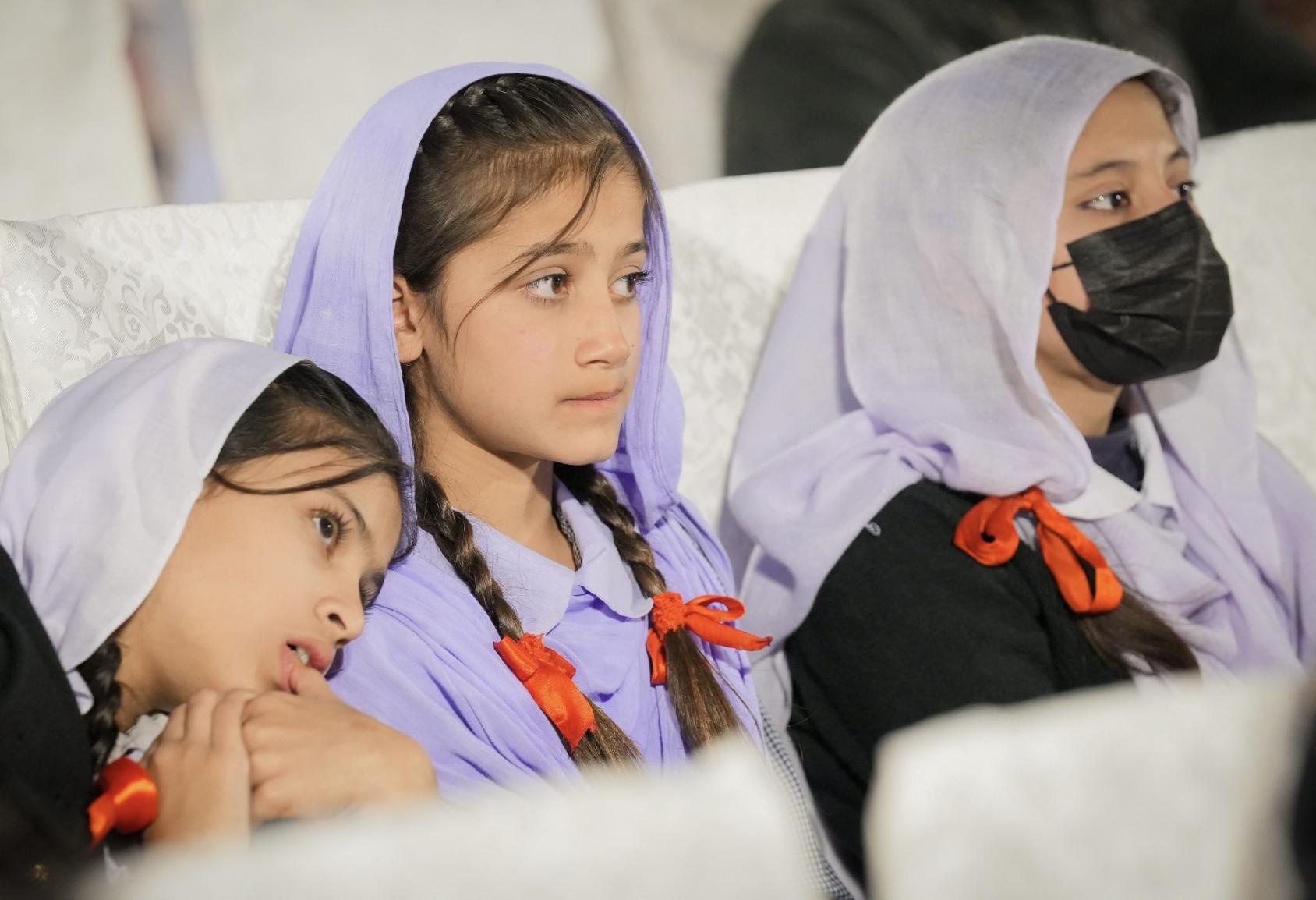Dialling Up Coordination in Pakistan
As 2024 draws to a close, UN Resident Coordinator in Pakistan, Mohamed Yahya, reflects on the pivotal role of development coordination in amplifying the UN's impact on the ground.
In a nation grappling with multifaceted development hurdles, he emphasizes the necessity of uniting efforts to effectively address these challenges. "Pakistan is a very big and complex country with a lot of development needs," RC Yahya notes. "We have more than 23 UN agencies present in the country, so coordination for me is really bringing all those assets together in a focused manner to support the development plans and ambitions of the country."
RC Yahya stresses that coordination transcends mere joint programming; it's about cultivating a shared understanding and delivering unified support. “[Our work is] about joint thinking and joint support," he says. This collaborative approach, he argues, is indispensable for the UN to achieve meaningful impact in Pakistan.

Leveraging UN expertise
To illustrate how this collaborative approach translates into action, RC Yahya highlights key examples from the areas of food security and climate change. He explains how the UN in Pakistan works with the government to identify challenges and develop comprehensive solutions.
"For example, on food systems, we brought together the Rome-based agencies (Food and Agriculture Organization, World Food Programme and International Fund for Agricultural Development), who are mandated to look at food security, nutrition and issues related to transport and export together with WHO (World Health Organization) and UNICEF (UN Children’s Fund) to find a pathway towards addressing Pakistan's food security challenges," he explains.
This collaborative effort, Yahya notes, involves assisting the government in strategizing solutions before delving into project specifics and funding. "Before we even think about projects and financing, we help government think through how to overcome the specific challenge," he says. "And once we're able to do that, we're able to go to government and say you ought to do ABCD if you want to solve this specific issue...and the UN can provide technical support and help you [government] find financing to overcome those [challenges]."
RC Yahya highlights a similar approach in tackling climate change, a pressing issue for Pakistan. "As a collective, the UN comes together and provides solutions for response, preparedness, and community resilience to address the cyclical floods the country faces. We also advise the government on securing financing globally to enhance adaptation, because these issues will not be going away anytime soon," he says.
He emphasizes that the underlying principle is the same across these diverse challenges: "We come together. We bring our thought leadership, offer government a pathway to solve a specific challenge, and help government find financing to be able to implement those action points we've agreed together." This, he says, is the essence of the UN's work in Pakistan, ensuring that programmatic interventions are "catalytic to something much bigger that the government has already identified."
Inclusion for collective prosperity
UN agencies in Pakistan also come together in addressing inclusion. As RC Yahya underscores, inclusion is not just a matter of rights, but essential for the country's survival, development, and security. "We advance the issue of inclusion in Pakistan, both from an economic but also from a rights-based perspective," he explains. This dual approach, he hopes, will resonate with those who may not immediately see the inherent value of inclusion. "It's an important thing to do and the right thing to do," he says, "but also in this case, it's crucial for the economic well-being of the country."

Coordination helps move the development dial
Coordination is crucial for effectively leveraging financial resources for development. RC Yahya challenges the common perception of financing as solely about securing funds for individual agencies or programmes. "Sometimes we think financing only as how much money comes to my agency or my programme," he observes. "But here is really financing for government to find solutions."
He emphasizes the importance of supporting government-led initiatives, particularly in tackling large-scale challenges. "For example, for the 26,000,000 children out of school in Pakistan, there is no lone UN programme able to move the dial," RC Yahya notes. "But our ideas, our bringing financing for government and letting local and central government...take the lead is the only chance we have for transforming education."
Furthermore, the Resident Coordinator's impartial leadership, coupled with the UN reform's focus on strategy and collective action, enables the delivery of more impactful results. "The UN Resident Coordinator's role is to focus on the big picture, the North Star, which in this case are the Sustainable Development Goals (SDGs)," Yahya explains. "It's about leveraging the UN's assets and working closely with the government to accelerate sustainable development."
RC Yahya concludes the year with an important message of hope and determination. "We have six years to go," he says, "and things may seem a bit dim right now with continued conflict and challenges to the UN Charter, however as I tell my team in Pakistan, we're in the business of hope. We put our head down, we accelerate, and we always believe that tomorrow will be better than today."
Read more coordination results from Pakistan.













